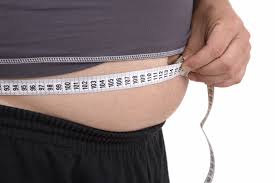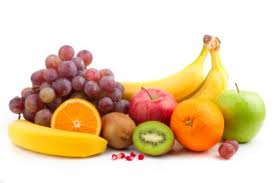
You might have a genetic predisposition to put on weight. Maybe your mother, father or brother is overweight. The good news is that we now know that genes can be switched off and on and that the carbohydrates we eat are responsible for regulating the hormone which leads to weight gain. Having ‘bad’ genes just means that it is more important for you to be aware of this. Carbohydrates are responsible for insulin secretion and insulin is the fat storing hormone. If you are overweight, it’s very likely that it’s the carbohydrates in your diet which are to blame. To become leaner you must be aware of the quantity and quality of carbohydrate in your diet.
Are all carbohydrates equal?

No. Some carbohydrates raise your blood sugar more than others. These high glycemic carbohydrates are the ones which need to be reduced or eliminated from your diet. Eating less of these carbohydrates means less insulin will be secreted meaning less food which you eat will be stored as fat.
Which carbohydrates are bad?
The sugary and starchy carbohydrates which are digested quickly. Examples are grain based foods (bread, cereals and pasta) liquid carbohydrates (beer, fruit juice and carbonated soft drinks) and starches (potatoes, rice and corn). These foods are quickly digested and flood the bloodstream with glucose. It’s insulin’s job to remove this toxic amount of glucose and it does this by pushing some of the glucose to our muscles where we burn it as energy and pushing the remainder into our fat cells.
Which carbohydrates are good?
The carbohydrates in salad vegetables, most of the vegetables which grow above ground including leafy greens which are bound up in indigestible fibre meaning they take longer to digest. This ensures we don’t get a high blood sugar spike and as a result less insulin is secreted. These carbohydrates have a low glycemic load, therefore they are less fattening.
What about fruit?

Many people are shocked to find out that fruit can be fattening. I’m sure a lot of people reading this who have tried to lose weight in the past have increased the amount of fruit which they eat. Yes fruit contains many vitamins and antioxidants, however if you are trying to lose weight fruit may not be your friend. The type of sugar in fruit is called fructose. Unlike sugar and starches fructose has to be sent to the liver to be metabolised. This is because the liver contains the necessary enzymes. This extra step means it may not effect our blood sugar levels immediately, however, our liver responds to this flood of fructose by turning much of it into fat. For this reason fructose is actually more lipogenic, or fat-producing than glucose. Go for the low glycemic load fruits such as berries when choosing fruit.
How it all happens – step by step
- We think about eating a meal containing carbohydrates
- We begin secreting insulin
- Fat cells prepare to take up fat
- You start eating
- You secrete more insulin
- The carbohydrates are digested and as a result they entre your bloodstream as glucose
- Your blood sugar rises
- You secrete more insulin
- Fat and carbohydrates from the diet are stored as fat
- You get fatter
How to switch from fat storing mode to fat burning mode

Stored fat (triglycerides) is constantly being broken down (into free fatty acids) and entering the blood stream so that it can be used up as energy. The problem is that if you eat a diet containing these sugary and starchy carbohydrates you will never access this for energy so it will be returned to the fat cells and stored once again as fat. The reason for this is that the constant flood of toxic levels of glucose as a result of your high carbohydrate meals must be delt with first. Some is used for energy and some is stored as fat.
You want to make sure your body is in fat burning mode not fat storing mode. To ensure this you must eat less of these sugary starchy foods also known as high glycemic load carbohydrates.
You want to make sure your body is in fat burning mode not fat storing mode. To ensure this you must eat less of these sugary starchy foods also known as high glycemic load carbohydrates.
But aren’t carbohydrates heart healthy?
No. The high glycemic load carbohydrates are not. My next blog article will explain this.

 RSS Feed
RSS Feed
